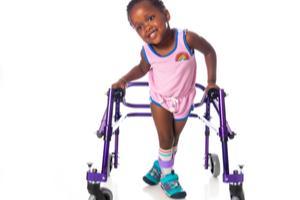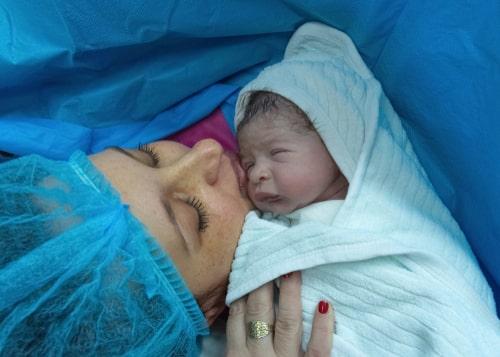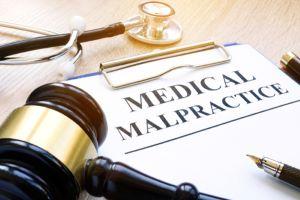Chicago, IL 60601
FREE CONSULTATIONS 312-462-4200
TOLL FREE 833-462-4200
Recent Blog Posts
Should My Doctor Have Repositioned My Breech Baby Before Birth?
 The best position for an infant during delivery is in vertex, or headfirst, position. An infant’s skull is naturally flexible, and the passage of a headfirst infant through the birth canal usually allows the rest of the body to follow smoothly. When infants are not positioned headfirst shortly before delivery, they are considered “breech.”
The best position for an infant during delivery is in vertex, or headfirst, position. An infant’s skull is naturally flexible, and the passage of a headfirst infant through the birth canal usually allows the rest of the body to follow smoothly. When infants are not positioned headfirst shortly before delivery, they are considered “breech.”
Breech infants may be foot, back, or bottom first - anything position that places the infant’s head towards the mother’s chest instead of the birth canal is considered breech. Although most infants will naturally reposition themselves around week 36 of their mother’s pregnancy, when an infant does not, doctors must take action to ensure the baby is safe during delivery. If a doctor does not correctly recognize and address a breech baby, serious birth injuries can occur.
How Can a Doctor Help a Breech Baby?
What If a Medication My Illinois Doctor Prescribed Caused Birth Defects?
 When our doctors prescribe us medicine, we usually trust them to know what is best for our health - after all, they have significant training and experience and any Cook County doctor who prescribes medicine is expected to ensure the expected benefits outweigh any risks. Unfortunately, the companies that make medicine do not always correctly describe adverse effects, and not all doctors exercise appropriate caution when prescribing medicines to pregnant women.
When our doctors prescribe us medicine, we usually trust them to know what is best for our health - after all, they have significant training and experience and any Cook County doctor who prescribes medicine is expected to ensure the expected benefits outweigh any risks. Unfortunately, the companies that make medicine do not always correctly describe adverse effects, and not all doctors exercise appropriate caution when prescribing medicines to pregnant women.
Pregnant women are particularly at risk from dangerous prescription drugs. Certain drugs are known to cause permanent harm to a developing fetus that can result in serious complications. These complications can be life-threatening, and, even when they are not, they can result in years of expensive medical treatment and necessitate 24/7 caregiving. If a baby suffers birth defects or birth injuries because of a medication error during pregnancy, labor, or delivery, there may be a possibility of recovering compensation.
Serious Birth Injuries Can Cause Long-Term Hearing Loss

Childbirth can be a difficult but joyous experience. However, when things do not go according to plan, complications can occur that may result in harm to the child or mother. Doctors, nurses, and other medical personnel must monitor the mother and infant carefully, ensuring the highest standard of medical care is met and taking quick and effective action to address any complications.
Sometimes, the medical staff does not give their patients the care they need. When this happens during childbirth, the birth injuries that may result can have devastating long-term consequences. One of these consequences may be full or partial hearing loss. It is important to understand when improper medical care during childbirth can cause hearing loss.
Common Causes of Infant Hearing Loss
Most cases of hearing loss in infants happen because of genetic factors, such as an inherited syndrome or a random genetic mutation. However, non-genetic hearing loss may be caused by a traumatic event or series of events during childbirth. Some common traumatic situations that can result in full or partial hearing loss include:
Are Minorities in Illinois at Greater Risk of Maternal Injury or Death?
 By its very nature, the process of giving birth to a child puts mothers and infants at heightened risk of health problems, including serious birth injuries and maternal death. Yet the risk of maternal injuries impacts certain people more than others. According to the CDC, Black, American Indian, and Alaska Native women are up to two to three times more likely to die from pregnancy-related issues than white women. Most of these deaths are preventable.
By its very nature, the process of giving birth to a child puts mothers and infants at heightened risk of health problems, including serious birth injuries and maternal death. Yet the risk of maternal injuries impacts certain people more than others. According to the CDC, Black, American Indian, and Alaska Native women are up to two to three times more likely to die from pregnancy-related issues than white women. Most of these deaths are preventable.
All women deserve to be treated according to the highest standard of medical care. But when Illinois doctors fail to abide by standardized protocols and do not maintain awareness of their patients’ risks and medical needs, women can suffer serious injuries and even death during childbirth. If you or someone you love has been injured or killed during childbirth, an experienced Illinois maternal injury attorney may be able to help.
When Can Development Delays Be Caused by Medical Malpractice at Birth?
 The birth of a child can be one of the most joyful times of a parent’s life. Yet labor and delivery also carry significant risks, including dangers to the child’s current and future health. Competent medical care can minimize most risks during childbirth and most doctors and nurses serve their patients with an excellent standard of care.
The birth of a child can be one of the most joyful times of a parent’s life. Yet labor and delivery also carry significant risks, including dangers to the child’s current and future health. Competent medical care can minimize most risks during childbirth and most doctors and nurses serve their patients with an excellent standard of care.
But sometimes, a medical provider’s exhaustion, sloppiness, neglect, or incompetence cause a neonatal infant real harm. Physical birth injuries can cause pain and suffering for a child, but they can also result in long-term developmental delays and disabilities. In turn, this can require difficult and expensive medical treatment that may be necessary for many years and even an entire lifetime.
Which Birth Injuries Can Cause Developmental Delays?
“Developmental delay” is a fairly broad term that indicates a child is not reaching appropriate developmental milestones at a certain age. These include cognitive, physical, verbal, auditory, and emotional abilities that persist over time. Some begin relatively early and are quite clear, while others may develop more slowly and take time to recognize.
Common Causes of Infant Skull Fractures Due to Medical Negligence
 A child’s birth can be an intense and frightening experience, even when things go well. New parents experience so many unknowns, and in retrospect, the entire process can seem like a blur. Yet it is crucially important to be alert and pay close attention during your child’s birth because sometimes things do not go as planned.
A child’s birth can be an intense and frightening experience, even when things go well. New parents experience so many unknowns, and in retrospect, the entire process can seem like a blur. Yet it is crucially important to be alert and pay close attention during your child’s birth because sometimes things do not go as planned.
Infants can sustain injuries during childbirth, and some of these injuries are unavoidable. Other times, however, they happen as a consequence of negligence on the part of a medical provider. Skull fractures are an all-too-common injury that infants may sustain because of a medical mistake or oversight. If your infant was seriously hurt or killed during childbirth, contact an experienced Illinois birth injury attorney to learn about your legal options.
Common Causes of Skull Fractures During Childbirth
Skull fractures can happen for many reasons; no matter the cause, they can pose serious risks to an infant’s life. Some common reasons an infant’s skull might be fractured during childbirth include:
Can I Sue My Doctor if My Infant Suffered From Hypoxic Ischemic Encephalopathy?
 Both mothers and infants are at a heightened risk of complications and injuries during labor. Sometimes, injuries happen because of unpredictable events; other times, a provider’s negligence is responsible for causing problems. One of the most dangerous forms of birth injuries is hypoxic-ischemic encephalopathy (HIE), or a lack of oxygen to the brain during birth. Infants who do not have sufficient access to oxygen during labor can suffer from permanent brain damage and even die. Providers must be aware of the risk factors that heighten the potential for HIE and can be held liable for birth injuries resulting from failure to provide a safe and appropriate standard of care.
Both mothers and infants are at a heightened risk of complications and injuries during labor. Sometimes, injuries happen because of unpredictable events; other times, a provider’s negligence is responsible for causing problems. One of the most dangerous forms of birth injuries is hypoxic-ischemic encephalopathy (HIE), or a lack of oxygen to the brain during birth. Infants who do not have sufficient access to oxygen during labor can suffer from permanent brain damage and even die. Providers must be aware of the risk factors that heighten the potential for HIE and can be held liable for birth injuries resulting from failure to provide a safe and appropriate standard of care.
What is Hypoxic-Ischemic Encephalopathy?
Although there are many ways that a lack of oxygen can damage an infant during childbirth, HIE specifically refers to an inadequate supply of oxygen to the brain. Many complicating factors can contribute to HIE, including, but not limited to:
Serious Consequences of Delayed C-Sections in Cook County Hospitals
 C-sections, short for “cesarean sections,” are generally a safe alternative to giving birth vaginally. C-section deliveries can be planned in advance, but can also happen unexpectedly or in an emergency. Prolonged labor or pregnancy complications often require C-sections to preserve the health of the mother and the baby.
C-sections, short for “cesarean sections,” are generally a safe alternative to giving birth vaginally. C-section deliveries can be planned in advance, but can also happen unexpectedly or in an emergency. Prolonged labor or pregnancy complications often require C-sections to preserve the health of the mother and the baby.
When timed and performed correctly, C-section deliveries can save lives. But when doctors do not recognize that a C-section delivery is necessary, a delayed procedure can cause serious injuries and even death. Read on to learn more about when C-sections may be necessary and the potential consequences of improperly delaying this important procedure.
What Are Common Injuries From a Delayed C-Section?
Injuries resulting from delayed C-sections are one of the most easily preventable birth injuries, making it especially devastating when obstetricians fail to recognize their necessity. Infants are at greatest risk of catastrophic birth injury, and common types of injury include:
Can Untreated Maternal Genital Herpes Cause Infant Injury or Death?
 Healthy children are born every day in Cook County hospitals, and for most parents, childbirth is one of the hardest but most joyous experiences they will ever have. For some parents, however, what should be a sacred and precious experience ends in a nightmare. If a mother has a case of undiagnosed or untreated genital herpes, there is a risk that an infant will catch herpes from the mother during childbirth, resulting in serious injuries or death.
Healthy children are born every day in Cook County hospitals, and for most parents, childbirth is one of the hardest but most joyous experiences they will ever have. For some parents, however, what should be a sacred and precious experience ends in a nightmare. If a mother has a case of undiagnosed or untreated genital herpes, there is a risk that an infant will catch herpes from the mother during childbirth, resulting in serious injuries or death.
Can a Newborn Get Genital Herpes?
Newborns can catch genital herpes from their mothers, especially if the mother contracted herpes for the first time during the last six weeks of her pregnancy. The first herpes outbreak a person experiences is usually her worst, but a mother having an outbreak may be actively shedding the virus during birth even if it is not her first. Women who are having an active herpes outbreak who share that information with their doctors and fail to receive adequate treatment may pass the infection onto their infants.
What Do You Need to Prove Medical Malpractice in a Birth Injury Case?
 Doctors, nurses, surgeons, pharmacists, and other medical professionals are held to a high standard when it comes to patient care. Something as simple as misinterpreting a laboratory test result or ignoring an elevated fetal heart rate can have disastrous consequences – especially during pregnancy and birth. If you or your baby were harmed by suspected medical negligence, you may be able to take legal action to hold the party who was at fault responsible and recover financial compensation for your damages. However, to bring a successful birth injury claim, you will need compelling evidence.
Doctors, nurses, surgeons, pharmacists, and other medical professionals are held to a high standard when it comes to patient care. Something as simple as misinterpreting a laboratory test result or ignoring an elevated fetal heart rate can have disastrous consequences – especially during pregnancy and birth. If you or your baby were harmed by suspected medical negligence, you may be able to take legal action to hold the party who was at fault responsible and recover financial compensation for your damages. However, to bring a successful birth injury claim, you will need compelling evidence.
Elements of a Birth Injury Case
Doctors and other medical professionals cannot prevent every tragedy. However, they do have a legal obligation to provide competent medical care to their patients.
When a mother or her child are harmed during pregnancy, labor, or delivery by a medical mistake or oversight, a victim or their family members may choose to bring a medical malpractice claim against the liable party. The at-fault party may be an individual medical provider or a medical facility such as a hospital. To be successful, the plaintiff in a birth injury case must prove:





